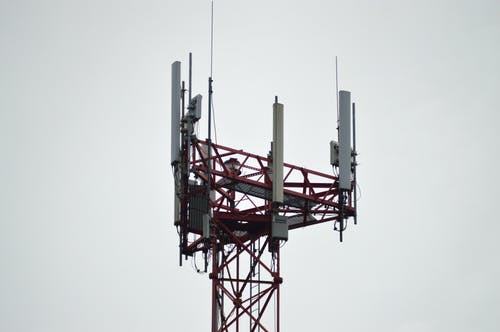North South
Digital Divide Widens: A Close Read

Telephopne tower - Pixabay
By Khutso Nkadimeng, 25 Sep 2021
In 2020, bustling cities known for non-stop economic activities came to a sudden shutdown due to the Covid-19 pandemic. Areas notorious for traffic congestions were now empty and those noise making cars disappeared with the livelihoods of those who made a living through servicing the city dwellers. Just like any organism fighting for survival, cities did not simply give up their circulatory system. They moved it underground. Traffic disappeared from the road and peaked up on faster highways in the form of fibre optics. In that process of changing lanes, existing but often hidden disparities were exposed, and the inequities of our world found a new way of self-expression through digital technology.
When schools were transitioning to e-learning in South Africa, an estimated 750 000 students dropped out due to the lack of resources required for distance learning. Data costs and access to hardware are the two leading factors widening the digital gab (Mlaba 2021). This is not just a South African problem. According to UNESCO, 830 million students around the world do not have access to computers. And in Africa, 40% of students do not have internet access at home. In Sub-Saharan Africa, 82% of students are “unable to go online” (Takaki and Glynos 2020). Looking at these numbers, it is easy to see how the digital divide will lead to a more unequal society.
Less privileged students were not the only ones disadvantaged by daily activities moving online. Underprivileged workers were affected too (Takaki and Glynos 2020). Research by the Wits School of Governance found that “one in every two jobs lost as a result of Covid-19’s economic onslaught was once held by an informal worker” (Smit 2021). The informal sector accounted for about 28% of all employment before the pandemic, but represented 50% of all job losses, making it the hardest hit (Smit 2021). Teleworking is only an option for high-income earners who can continue doing office work remotely using technology (Takaki and Glynos 2020).
What we are seeing is a vicious cycle. Effective reproduction of inequality. Parents who barely made ends meet find themselves out of jobs. Their children trying to acquire education to better the family’s circumstances drop out of school because their parents cannot afford to put them online. Even if the family tried, in South Africa data costs in non-affluent areas are 80 times more expensive. Only a privileged few in affluent homes have access to fixed affordable internet (Mabena 2019). This poor state of affairs echoes Khanyi Mlaba (2021), that the digital divide is “having a negative impact on two of the country’s best chances at development and equality, those being access to education and access to employment opportunities”.
What can be done? The efforts of bridging the gap must continue even after the pandemic is over. I agree with Maria Tataki and Dimitris Glynos (2020) that “providing everyone access to digital infrastructure should constitute our priority”. The UK government lent laptops to students and Thailand “has created a scheme of 10 free gigabytes of data usage for mobile users” (Takaki and Glynos 2020). Similar efforts were undertaken here in South Africa. The government through the National Student Financial Aid Scheme is distributing laptops to students (Chetty 2021). In 2020 universities such as Wits started their initiatives of givinglaptops to students (University of the Witwatersrand). I was personally receiving 30 (10 daily and 20 night-time) gigabytes as part of a deal negotiated with telecommunication service providers. I have also received such assistance from my lecturers and their families (thank you Hanli), and I believe these are the kind of efforts capable of bridging the digital gap. Through government, business and people who care.
References
- Tataki, M. and Glynos, D. 2020. Institute for Internet and the Just Society: Digital Divide Widens.
- Mlaba, K. 2021. Global Citizen How Is South Africa's Digital Divide Making Inequality Worse in the Country?
- Smit, S. 2021. Mail & Guardian: Covid kills a decade of employment growth in SA
- Mabena, N. 2019. SABC News: ‘Digital divide will isolate poor South Africans from 4th Industrial Revolution
- Chetty, S. 2021. SABC News: Higher Education to distribute 50 000 laptops to NSFAS-funded students
- The University of the Witwatersrand. 2020. University of the Witwatersrand: Wits thanks SA Post Office for delivering laptops to students